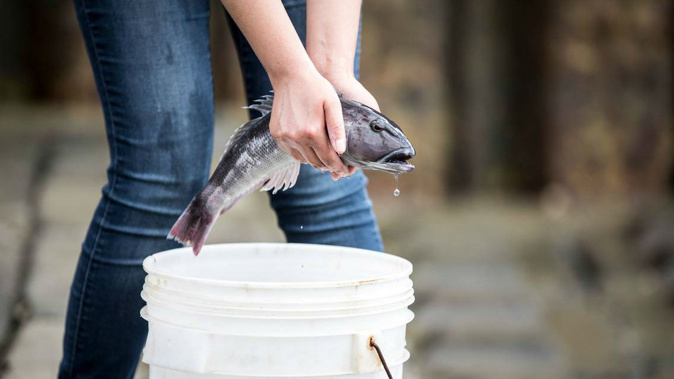
A Buddhist practice of "saving lives" can cause an ecological catastrophe in New Zealand, an environmental expert says.
Auckland Buddhists have been releasing live animals, including turtles in Western Springs, as part of an ancient ritual called "fang sheng" or mercy release.
But Dr Imogen Bassett, Auckland Council's biosecurity principal adviser, said the red-eared slider turtles are one of the world's 100 worst invasive species, and could wreak havoc on the ecosystems.
Buddhists the Herald spoke to said they have also been releasing eels and fish bought from restaurants and fish markets that are due to be slaughtered into rivers and the sea.
"While well intentioned, releasing captive animals into the wild is often not in the released animals' best interest and it can also harm our natural environment," Bassett said.
"Released animals may not be able to find sufficient food, shelter or adapt to the environment around them, leading to animal welfare problems."
She said releasing captive animals into the wild was also against the law in most cases.
There are fears that the number of animals being released could escalate in the lead-up to Chinese New Year, which falls on February 5.
/arc-anglerfish-syd-prod-nzme.s3.amazonaws.com/public/R4VE2552DREDTPI4SHRRFC3SG4.jpg)
Red-ear slider turtles at Western Springs. Photo / Cathy Casey
"Animals such as turtles or koi carp that are not native to New Zealand can have a devastating impact on our native species and put an additional stress on our already fragile freshwater ecosystems," Bassett said.
Western Spring's spring-fed lake is home to native eels and plants, and also birds such as the New Zealand scaup, pied shag, paradise shellduck and black swans.
Recently, the park has become a dumping ground for unwanted pets with rabbits and roosters being abandoned there.
A Buddhist practitioner, who did not want to be named, says she buys pet turtles on Trade Me for between $40 and $100 each, to set free at the lake.
She explained turtles were her preferred animals because they symbolised long life in Chinese cosmology and would earn her better karma.
Hayley Young, another believer, buys blue cod destined for the dinner table at restaurants and releases them at the Wynyard Quarter waterfront.
Young, who attends Fo Guang Shan Temple in Manukau, recites a Buddhist chant before releasing the fish into the water.
"We release these captive animals because as Buddhists, we respect all life, including animal life," Young said.
"After a fish is released, even if they die, they die in their natural home. They have been liberated and I believe this way they come back in a better position in their next life."
/arc-anglerfish-syd-prod-nzme.s3.amazonaws.com/public/66WQG4Y2ZZEFVKEXOURC2OGITE.jpg)
Western Springs Lake. Photo / Michael Craig.
A Ministry of Primary Industries spokeswoman says it isn't against the law to release fish caught in New Zealand waters back into the ocean.
However the bottom-dwelling blue cod found in restaurants are more likely to have been caught in the colder waters in the Cook Strait south and the Chatham Islands and not the Hauraki Gulf.
The owner of Seafood Paradise Restaurant, where Young paid $150 for two live blue cod, could not say where the fish were originally caught.
Releasing turtles, which are not native to New Zealand, is illegal, according to the ministry spokeswoman.
The Department of Conservation said the release of any animals could have unintentional impacts on native wildlife and said people should stop doing so - even if it was for religious purposes.
The authorities urged people wanting to release captive animals into the wild to instead to join threatened species conservation group such as Kiwis for Kiwis.
These organisations protect native species through captive rearing and reintroduction programmes.
University of Auckland senior medical lecturer Tony Fernando, a devout Buddhist, said there are other ways for Buddhists to earn their karma points.
"The freeing of animals is a noble tradition of compassion in action," Fernando said.
"But a more practical but definitely more difficult practice is to practice kindness in speech, thought and action consciously, on a daily basis, not just to animals, but also to family, colleagues, friends and strangers."
Buddhism, introduced by immigrants from East Asia, is the third largest religion after Christianity and Hinduism in New Zealand.
Take your Radio, Podcasts and Music with you









